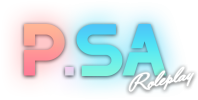The emergences of fair and inclusive scientific disciplines assessments is a cornerstone inside the pursuit of educational equity, hoping to accurately measure the knowledge in addition to skills of all students regardless of their backgrounds. As educative environments become increasingly diverse, the challenge of creating assessments that will serve a broad demographic with out bias intensifies. Educators and assessment developers must consider a range of factors from content relevance and language accessibility to cultural inclusivity and adaptive testing technologies.
Fairness within science assessments begins while using acknowledgment that students come from varied educational, cultural, along with linguistic backgrounds. This diversity impacts not only their understanding but also their performance in standardized tests. Traditional analysis practices often fail to accommodate these differences, leading to disparities in test outcomes that can influence academic and employment opportunities for underrepresented organizations. To counteract this, analysis designers are encouraged to integrate guidelines of fairness right from the designing stage. This involves collaborating having a diverse group of educators, students, and community members to make certain test content is relevant in addition to nondiscriminatory.
Language accessibility is often a critical aspect of inclusive examination. Exams that are linguistically sophisticated or nuanced can problem non-native speakers and learners with limited proficiency within the instruction language. Simplifying the particular language used in test concerns without diluting the medical rigor can help bridge that gap. It’s also beneficial to offer definitions for specialized words within the test or allow the use of glossaries. Further, providing assessments in multiple different languages, where feasible, ensures that learners can demonstrate their information without language barriers effecting their performance.
Cultural inclusivity is another vital component. Check items should be culturally neutral or include a balanced counsel of various cultures to avoid biases that might favor one team over another. This can be attained by avoiding culturally distinct analogies or references this not all students might recognize or relate to. Moreover, concerning cultural consultants during the problem development phase can provide information into subtle biases that could otherwise go unnoticed.
The particular format of the assessments also plays a significant role within inclusivity. While multiple-choice concerns are common, they may not always become the best method for all students to demonstrate their understanding. Alternative assessment methods, such as open-ended reactions, portfolios, and practical tests, can provide students with different avenues to express their scientific reasoning and procedural skills. These types of formats can also be more having and might encourage a deeper understanding of the material, benefiting just about all students but especially those that might struggle with traditional see more details assessment formats.
Technological advancements possess paved the way for adaptable testing, where the difficulty from the test is adjusted while using student’s performance as they advancement through the assessment. This type of tests can more accurately measure the ability of students at both ends of the academic variety, providing a fairer and more personalised assessment experience. However , health care must be taken to ensure that the actual algorithms driving these examination are free from biases which may perpetuate disparities.
Ensuring justness and inclusivity in scientific disciplines assessments also requires ongoing review and feedback. This would involve analyzing assessment data to identify any patterns of disparity among different scholar groups and making improvements to the assessment practices accordingly. Regular feedback from equally students and educators gives practical insights into the observed fairness and accessibility from the tests.
The stakes are high in educational assessments since they often determine future instructional pathways and career options. As such, the commitment in order to developing fair and inclusive science assessments is not merely an academic concern but a broader social liability. Striving for equity within education through fair testing practices reflects a commitment for you to giving every student a chance to succeed and to fostering any society where merit and diversity are truly celebrated. By means of adhering to these best practices, teachers and policymakers can contribute to a more equitable educational landscape, where every student provides the tools to reach their possible.
